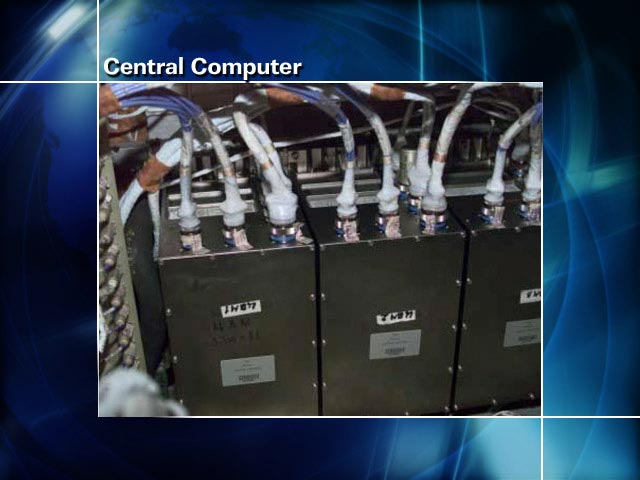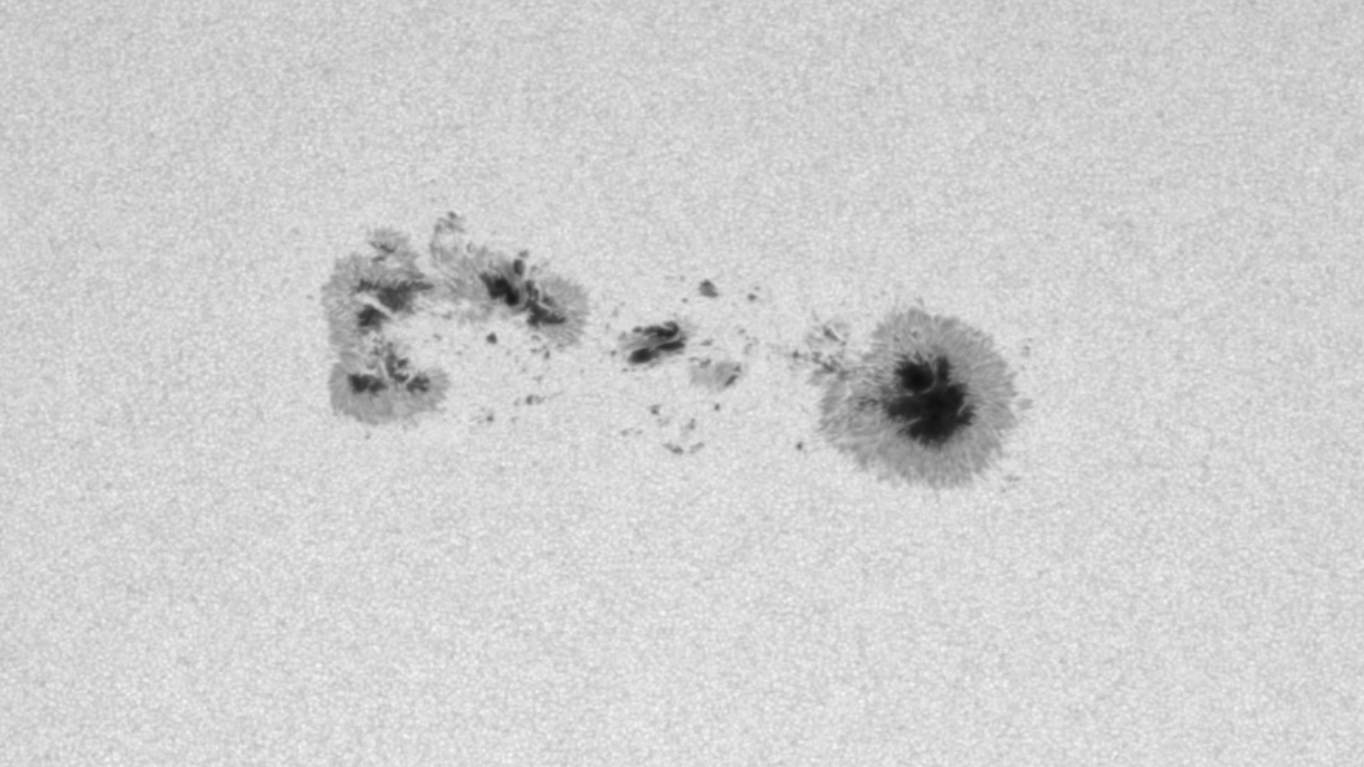NASA Eyes Workarounds for Space Station Computer Glitch

Breaking space news, the latest updates on rocket launches, skywatching events and more!
You are now subscribed
Your newsletter sign-up was successful
Want to add more newsletters?

Delivered daily
Daily Newsletter
Breaking space news, the latest updates on rocket launches, skywatching events and more!

Once a month
Watch This Space
Sign up to our monthly entertainment newsletter to keep up with all our coverage of the latest sci-fi and space movies, tv shows, games and books.

Once a week
Night Sky This Week
Discover this week's must-see night sky events, moon phases, and stunning astrophotos. Sign up for our skywatching newsletter and explore the universe with us!

Twice a month
Strange New Words
Space.com's Sci-Fi Reader's Club. Read a sci-fi short story every month and join a virtual community of fellow science fiction fans!
Thisstory was updated at 3:49 p.m. EDT.
HOUSTON --Russian and U.S. engineers are drawing up plans to work around the failure ofcritical computers aboard the International Space Station (ISS) in time for thedeparture of the shuttle Atlantis next week.
NASA?s ISSprogram manager Mike Suffredini said engineers are studying alternatives tohelp maintain control of the space station?s orientation, including usingrockets aboard docked Russian spacecraft, once Atlantis? STS-117 crew casts offfrom the orbital laboratory on June 19.
?Thehighest priority would be maintaining attitude once the shuttle has departed,?Suffredini said Friday.
The spacestation?s six Russian computers governing control and navigation systems wentoffline Wednesday, leaving the outpost unable to use Russian-builtthrusters to maintain its orientation as it flies through space.
The stationis currently relying on U.S.-built control moment gyroscopes, with thrustersaboard NASA?s visiting shuttle Atlantis as backup. After the shuttle undocks,however, the station?s gyroscopes are expected to be overwhelmed, or saturated,and have typically used Russian-built rockets to compensate.
Suffredinisaid that engineers are studying options to use thrusters aboard theRussian-built Soyuz spacecraft or two Progress cargo ships to dampen thestation?s momentum after Atlantis undocks in case the computer issue is notresolved by then. The computer issue is not one which threatens the station orits crew, he stressed.
Breaking space news, the latest updates on rocket launches, skywatching events and more!
?There isnobody in this agency and, as far as I know in the Russian agency, that thinksthat this vehicle is at risk of being lost,? Suffredini said, adding that thereare no plans in work to for the station?s Expedition 15 crew abandon theoutpost. ?I fully expect us to repair this problem.?
Missionmanagers are also considering moving up the launch of the next Russian Progressship from August to July 23 to deliver spare parts for the computers, some ofwhich appear to have failed secondary power supplies.
Somecauses ruled out
Missionmanagers have ruled out interference from power lines between the station?s newstarboard solar arrays and the station?s Zvezda service module, which housesthe computers.
On Friday,ISS flight controllers also ordered a spacewalking Atlantis astronaut JimReilly to disconnect an unused power cable on the station?s new Starboard3/Starboard 4 truss segment - which he connected during a June 11 spacewalk.The Russian computer systems appeared to begin experiencing difficulties whenthe cable was first attached, Suffredini said.
?This is acase where it?s circumstantial,? he added. ?We don?t know if that?s thecause."
Thecomputer failure has also left the station?s primary oxygen generator, theRussian-built Elektron, offline since it requires computer control, Suffredinisaid. But a new U.S oxygen generator is expected to be activated following aspacewalk today to install a hydrogen vent valve, and the station has asufficient supply of stored oxygen aboard to maintain its three-man crew, headded.
WhenAtlantis launched towards the ISS on June 8, the station carried enough oxygensupplies to support 10 astronauts for 56 days, mission managers said, addingthat those supplies would support three astronauts for a longer period.
Overnighttrials
Overnightefforts to recover six computers failed to return them to full operations,though power was restored to one command computer before troubleshootingefforts stood down.
?We endedup in the configuration that we started out the day in, which is unfortunatelynot having a central computer or a terminal computer,? said NASA ISS flightdirector Holly Ridings early Friday.
LateThursday, ISS astronauts scanned power lines to the Russian segment from thespace station?s U.S.-built solar arrays for any signs of interference, and ultimatelydisconnected cables transporting power from the newlyinstalled starboard solar arrays to the orbital laboratory?s Russianmodules. Engineers hoped the work would help determine if electromagneticinterference or possible ?noise? in the power feed from new starboard solararrays were a contributor to the station?s computer woes.
?Theengineers looked at that data and they did not find anything that was grosslyoff-nominal,? Ridings said. ?It would have been nice to find a smoking gun, butthat?s usually not how these things work.?
Engineersrestored power to one of the balky computers and briefly found a 'heartbeat'signaling its availability before standing down on troubleshooting efforts forthe day, Ridings said.
NASA hopesto resolve or workaround the computer issue by the time Atlantis undocks fromthe ISS on June 19, though mission managers are studying the possibility ofkeeping the shuttle at the ISS for an extra if needed.
- SPACE.com Video Interplayer: Space Station Power Up with STS-117
- Complete Shuttle Mission Coverage
- All About the International Space Station

Tariq is the award-winning Editor-in-Chief of Space.com and joined the team in 2001. He covers human spaceflight, as well as skywatching and entertainment. He became Space.com's Editor-in-Chief in 2019. Before joining Space.com, Tariq was a staff reporter for The Los Angeles Times covering education and city beats in La Habra, Fullerton and Huntington Beach. He's a recipient of the 2022 Harry Kolcum Award for excellence in space reporting and the 2025 Space Pioneer Award from the National Space Society. He is an Eagle Scout and Space Camp alum with journalism degrees from the USC and NYU. You can find Tariq at Space.com and as the co-host to the This Week In Space podcast on the TWiT network. To see his latest project, you can follow Tariq on Twitter @tariqjmalik.
